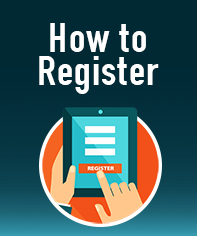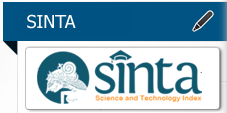ANALISIS PEMBELAJARAN KELUARGA BERENCANA MAHASISWA PRODI DIII KEBIDANAN
Abstract
Learning or support is basically an activity that is organized so that students learn. Adult learning methods that make learning a learning center or Student Center Learning (SCL). Process standards relating to the learning process, planning the learning process, implementing the learning process and learning burden on students.
Descriptive qualitative research methods The subjects of this study are students and lecturers. The informant taking technique used was purposive sampling. Snowball sampling technique. Data collection methods in this study, interviews, observation and study documentation. Analysis of the data of this study uses an interactive model through data reduction, displaying data, concluding and gathering conclusions.
Results: Planning the learning process of the family planning course, which is making a semester learning plan. This RPS contains course descriptions, learning achievements, subjects, instructional methods, structured assignments and discussions. RPS is prepared in accordance with the development of science and technology. The theory learning process using the Student Center Learning (SCL) method of lecturers as facilitators and motivators in family learning planning methods used are cooperative learning and Problem Based Learning (PBL). Laboratory learning uses role play and demonstration models. Assessment on learning theory is midterm, final semester examination and structured assessment assignment. Learning laboratory assessment list.
It takes a combination of learning methods and laboratories so that students are not bored and are more interactive so that learning outcomes are more optimal.
Full Text:
PDFReferences
Agustana, P. (2017). Prinsip-prinsip pembelajaran kompetensi di perguruan tinggi. Revitalisasi Tata Kelola Perguruan Tinggi Unipas Singaraja, 2017, 206–212.
Emda, A. (2017). Laboratorium Sebagai Sarana Pembelajaran Kimia dalam Meningkatkan Pengetahuan dan Ketrampilan Kerja Ilmiah. Lantanida Journal, 5(1), 84–92.
Helda, & Mekar. (2015). Pengaruh Model Pembelajaran Kooperatif Tipe Cooperative Script Terhadap Hasil Belajar Mahasiswa Pada Mata Kuliah Askeb IV (Patologi) Di Prodi DIII Kebidanan STIKES Ranah Minang Padang Tahun 2014. PEDAGOGI, XV(1), 65–72.
Mansyur, N., Budu, & Nontji, W. (n.d.). Perbedaan Hasil Belajar Mahasiswa DIII Kebidanan dengan Metode Pembelajaran Demonstrasi dan Role Play dalam Meningkatkan Ketrampilan Pemeriksaan Fisik Ibu Nifas. (14).
Maulidta, RP, D., & P, H. (2017). Pengaruh Mutu Pembelajaran Laboratorium Terhadap Hasil Praktikum Mahassiswa Semester II Keperawatan Widya Husada Semarang. NURSCOPE . Jurnal Keperawatan Dan Pemikiran Ilmiah.
Meity, N., Ernawati, Safra, & Yunita. (2010). Pengaruh Metode Role Playing Terhadap Motivasi Belajar Mahasiswa Prodi S1 Keperawatan Pada Pembelajaran Laboratorium Keperawatan Jiwa. Jurnal Keperawatan, 8(1), 814–818.
Permenristekdikti. (2015). Peraturan Menteri Riset Teknologi dan Pendidikan Tinggi Republik Indonesia Nomor 44 Tahun 2015 Tentang Standar Nasional Pendidikan Tinggi.
Susiloningtyas, I. (2017). Pengaruh kompetensi Dosen, Motivasi Belajar dan Indeks Prestasi Kumulatif terhadap Ketrampilan Pemasangan Alat Kontrasepsi Dalam Rahim oleh Mahasiswa Prodi D3 kebidanan Unissula Semarang. Jurnal Siklus, 6(1), 181–187.
Titik Huriah. (2018). Metode student center learning aplikasi pada Pendidikan keperawatan. PRENADAMEDIA GROUP. JAKARTA
Yanti. (2017). Pengaruh Model Pembelajaran Kooperatif Tipe Explisit Instruction (EI) Terhadap Hasil Belajar Mahasiswa Tingkat II Pada Mata Kuliah Pelayanan Keluarga Berencana (KB) di Prodi DIII Kebidanan STIKES Ranah Minang Padang. Jurnal Ilmu Kesehatan, 1, 110–116.
DOI: https://doi.org/10.26751/jikk.v11i2.807
Refbacks
- There are currently no refbacks.
Universitas Muhammadiyah Kudus
Jl. Ganesha Raya No. 1 Purwosari Kudus 59316
Tel/ Fax +62-291-437218
Whatsapp : wa.me/+6285117477445
Email : lppm@umku.ac.id
Jurnal Ilmu Keperawatan dan Kebidanan Indexed by:

This work is licensed under a Creative Commons Attribution-ShareAlike 4.0 International License.





_Logo_(PNG-720p)_-_Vector69Com1.png)





